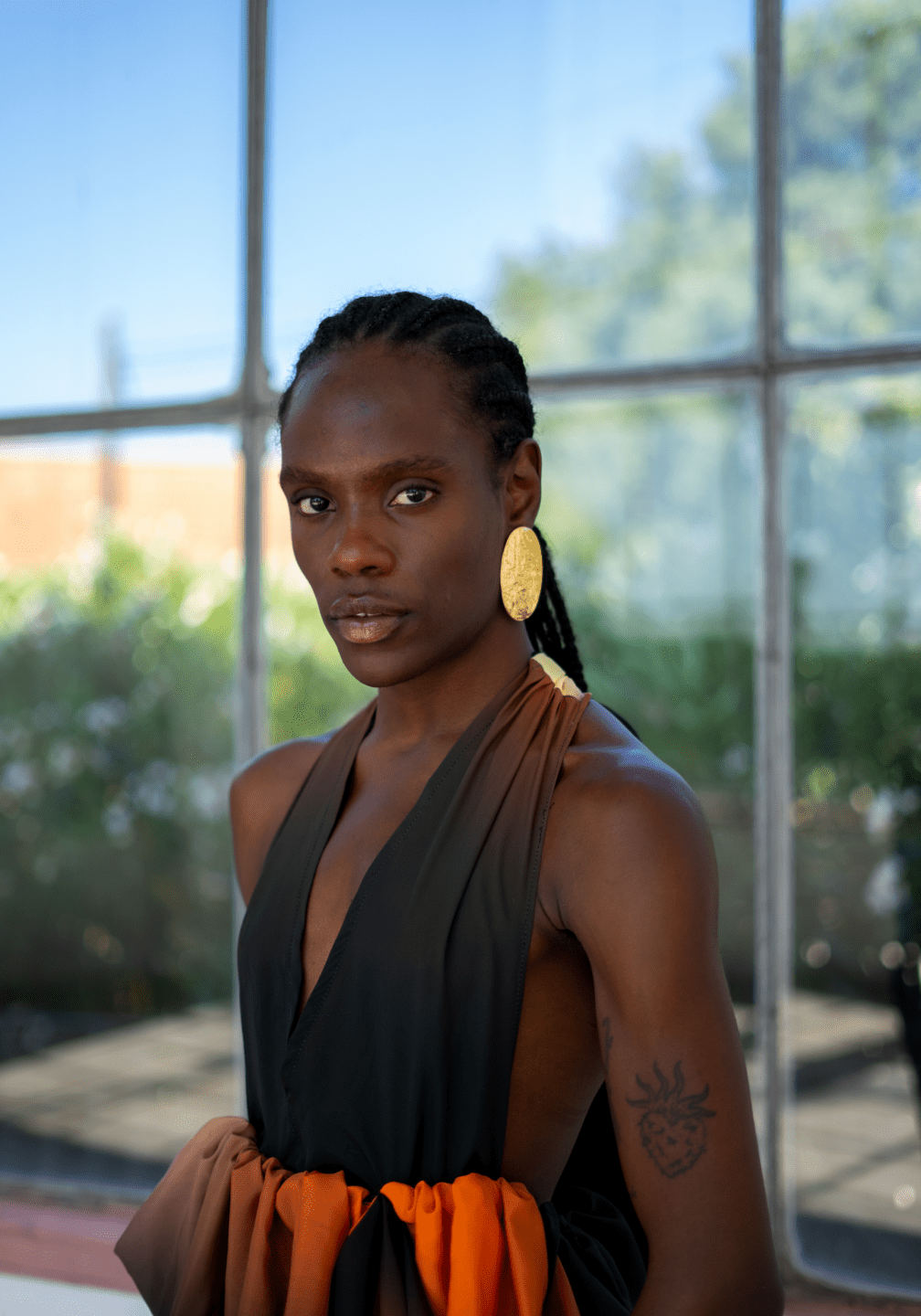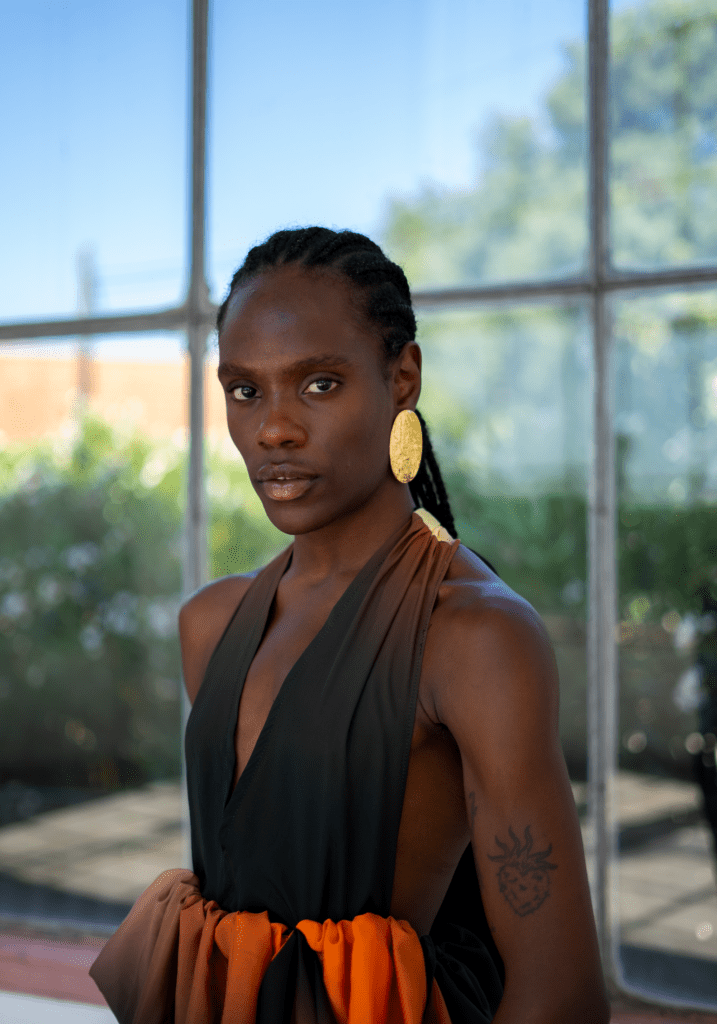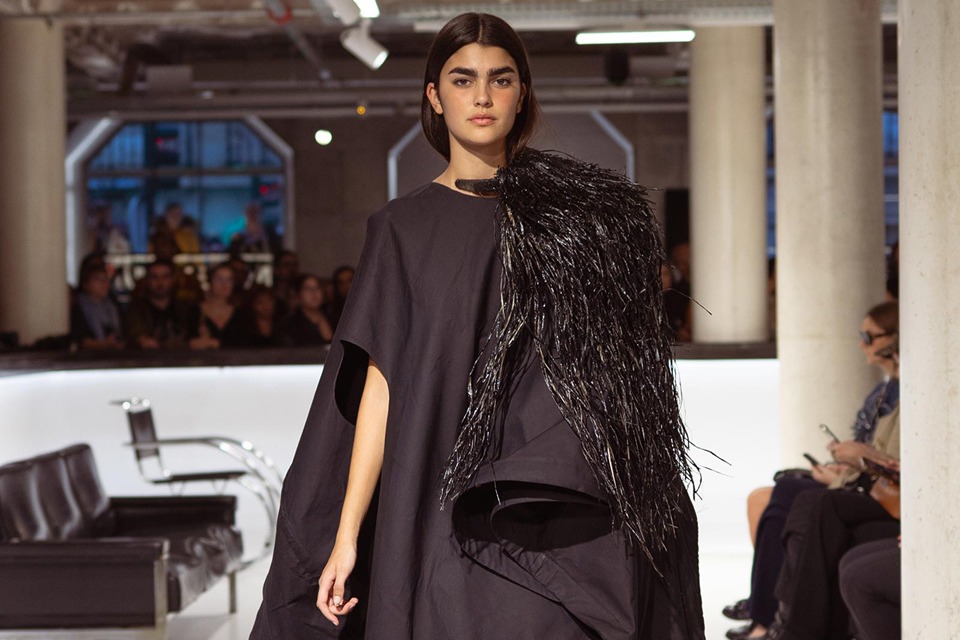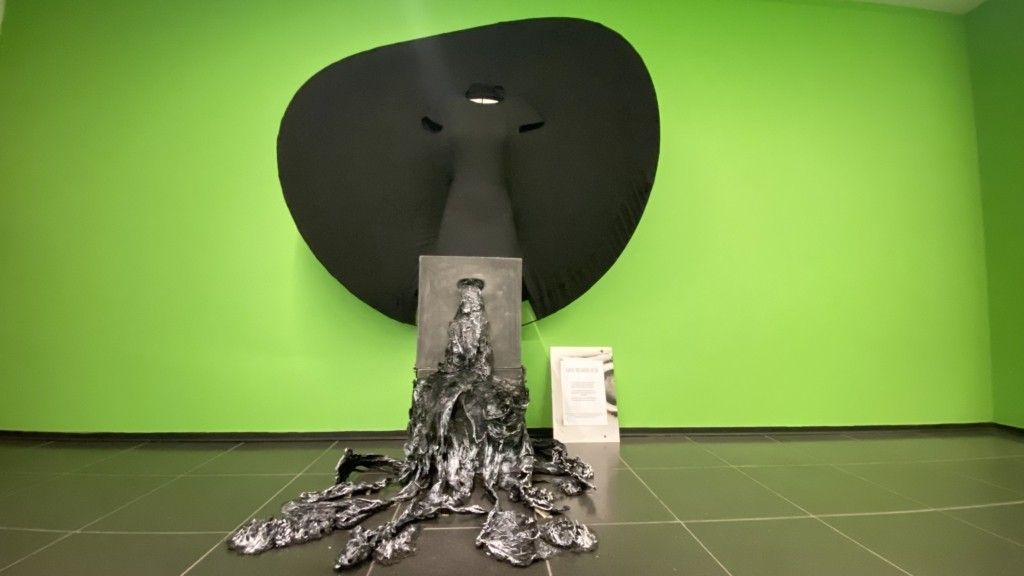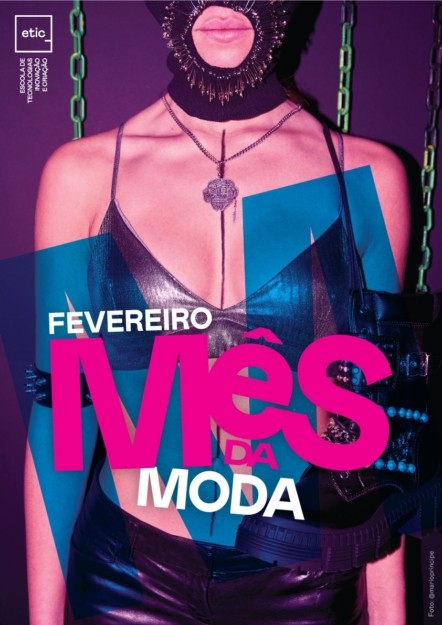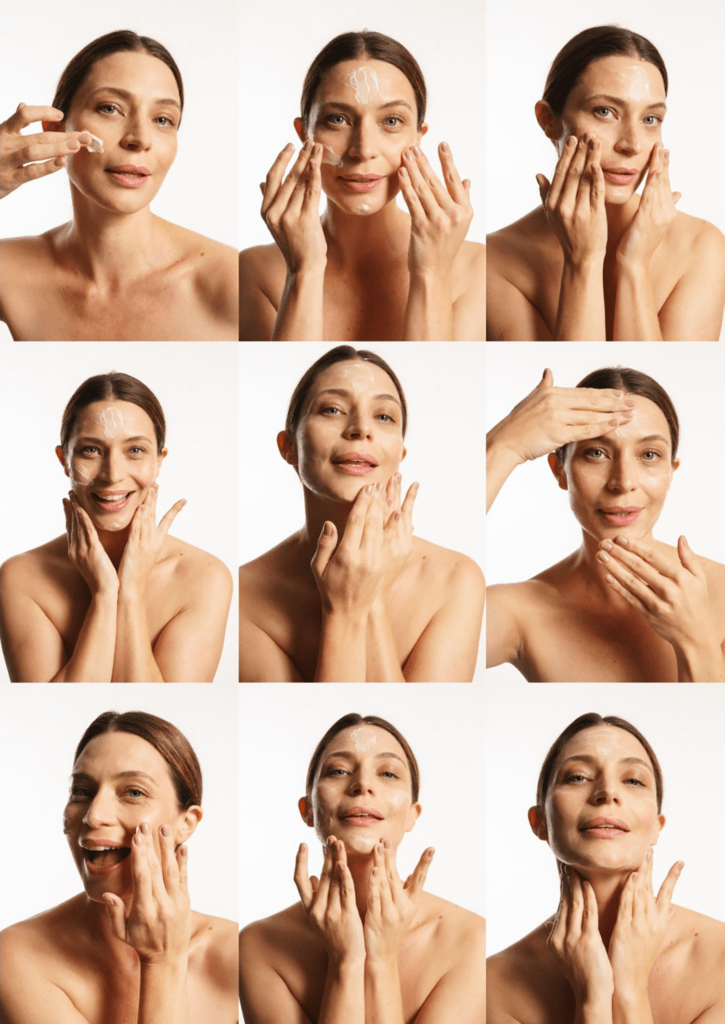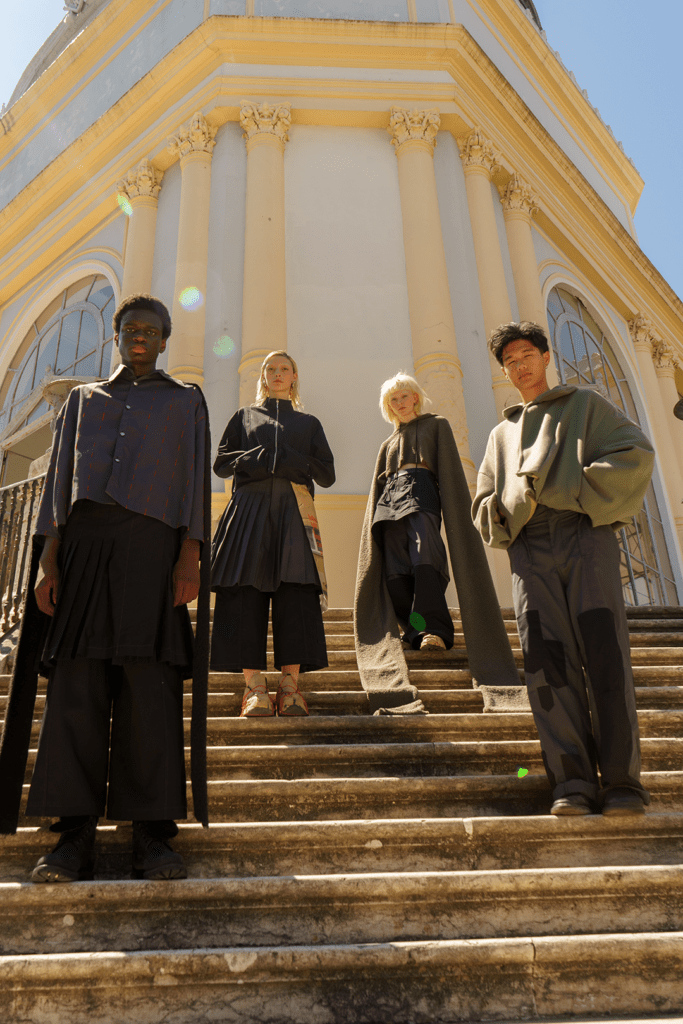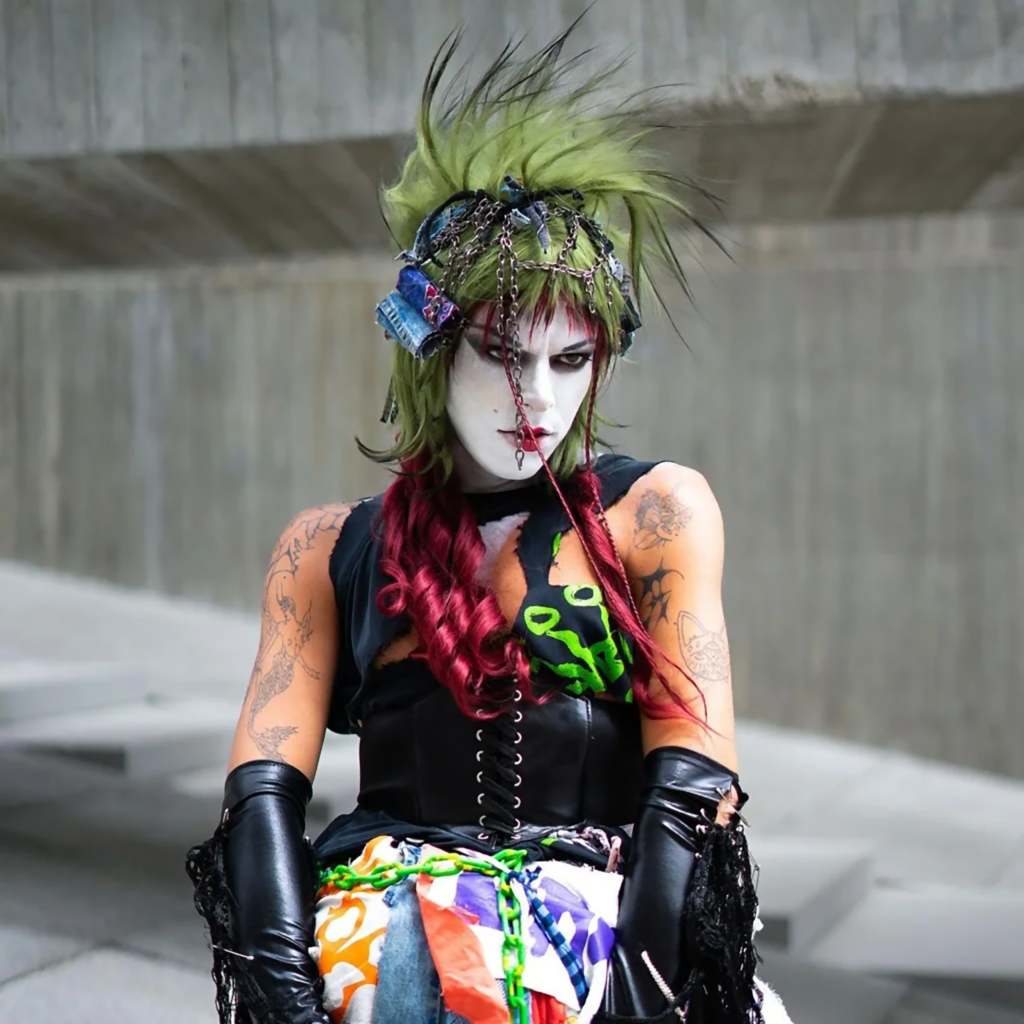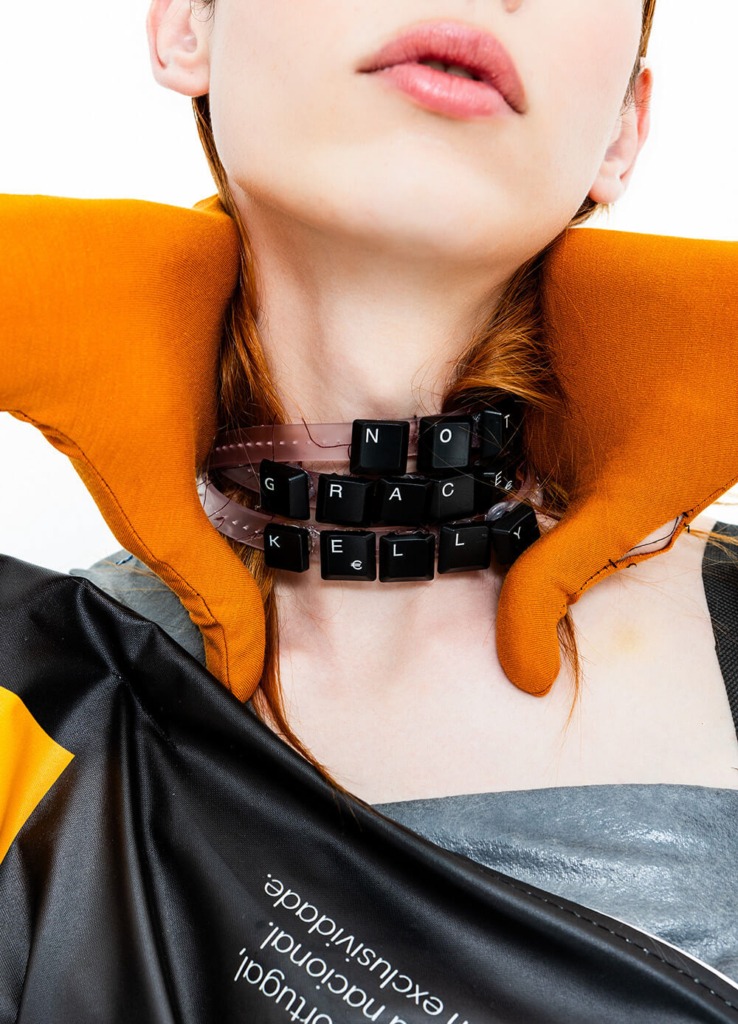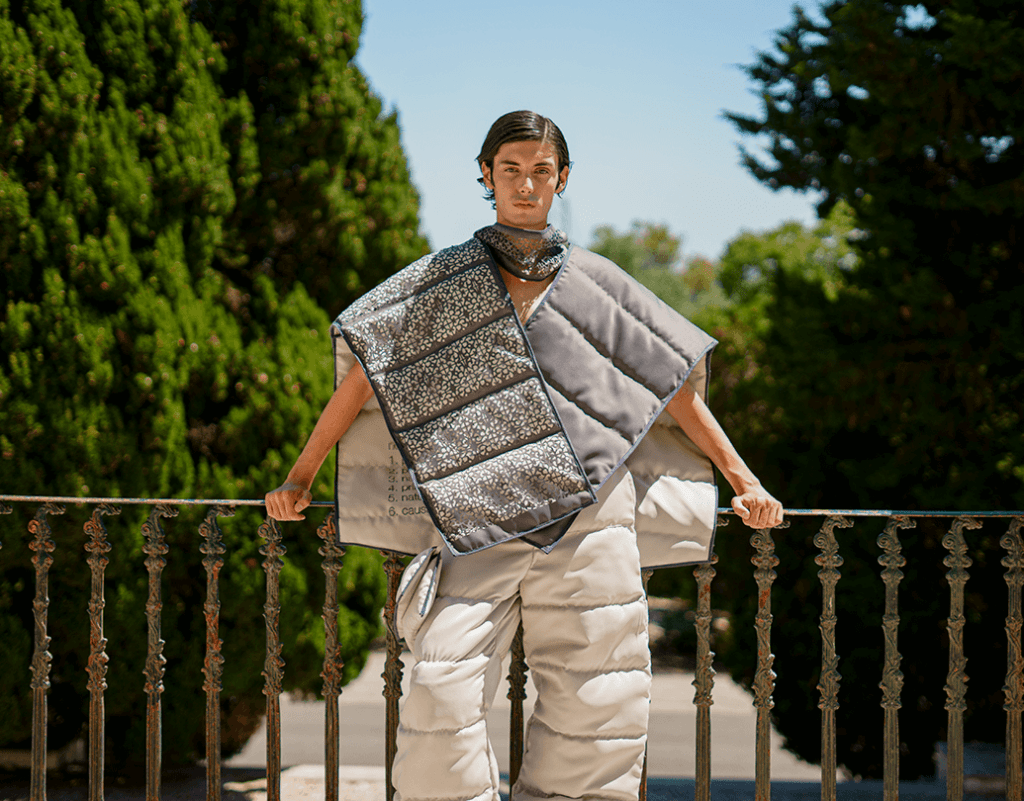Overview
It is a year of study progression for students who have finished 2 year courses in Fashion area /Pearson BTEC international certification, and also for other students whose equivalence can be granted. Certified competence in the English language is required.
Fashion Styling and Creative Direction combines essential practical and experiential skills, with the development and nurturing of innovative visual storytelling, enabling students to become distinctive and visionary communicators in the ever-changing world of fashion and media.
GLOBAL VISIBILITY FOR STUDENT PROJECTS
The students have support and guidance to submit their best work to international competitions, which allows greater visibility for their projects.
A CREATIVE ENVIRONMENT LINKED TO THE INDUSTRY
ETIC is also recognized for its creative environment and the proximity between students, teachers and staff. There is a close connection with the professional environment that results in partnerships with companies and institutions. Real briefings and creative challenges with professional positioning are part of the curricular projects. The school regularly promotes the possibility for students to participate in events and festivals where they practice, side by side, with the school team and sometimes with experienced professionals and mentors.
Proramme
Requirements: 240 CATS and English Level B2
Students from other schools whose equivalence can be granted can also enter and attend this 3rd year.
You will acquire the skills to put forward a convincing argument by building on the knowledge gained in Visual Culture. You will be able to structure your thoughts in a clear and logical manner; to find, identify and use the best sources; and write in a tone suited to academic work.
You will learn how to think like a filmmaker, producer, director and editor. You will learn about the history of fashion film and cinema, and how techniques and tropes from the past, along with different genres of film, can help you to develop new and innovative ways of telling stories.
You will learn how to storyboard and fluently communicate a narrative or idea in a clear and concise manner. You will explore the different roles and processes of filmmaking, including pre-production, planning, shooting and editing.
Throughout this module you will develop the skills and experiences expected to work competently within the creative industries. You will discover new career paths that are open to you as a creative practitioner, whilst consolidating previous skills attained through the previous modules of study on your degree. Following the 100 hours of work-based learning experience you will be guided in your reflection and analysis of your chosen experience.
Taught areas of study will include generic skills of reflective thinking and writing.
You’ll discover how to develop and transform initial ideas into radical and exciting visual outcomes. Through critical analysis and reflection of your research and developmental creative work, you will become more informed and confident in your own abilities and ideas.
You’ll be encouraged to find your own voice as a distinctive and visual communicator, while developing a deeper understanding of conceptual ideas, aesthetic judgement and independently led project work.
Throughout the module, you will be supported with tutorials and small group discussions togive you feedback and help you progress, and your practical skills will be strengthened with workshops in IT, photography, visual design, and makeup, to help you produce an innovative and sophisticated Final Major Project Proposal.
During this module, you will achieve a greater level of independence, managing research, study and practice, helping you to develop the skills needed to take the next step towards your future career.
The Final Major Project requires you to make a significant body of work, and you will draw and build upon the skills and knowledge acquired throughout the course. Additionally, you will be encouraged to develop as an experimental thinker and be creative in your approach when generating ideas for your project.
To support your independent learning and research, you will have the opportunity to discuss your progress and work through individual mentor tutorials, group feedback and presentation workshops and to help you in the production of your major project, you will be given technical and practical support, in the areas of IT, photography, and makeup & hair application.
CERTIFICATION
Solent University recognises the 3rd year of ETIC training and grants an equivalence corresponding to the 3rd year in the British educational system (Level 6 – 120 CATS*).
Certification obtained at ETIC is awarded by the British education system, and ETIC is not a higher education institution.
*CATS: Credit Accreditation Transfer System
TEACHING STAFF
BRÍGIDA RIBEIROS
ETIC Link Tutor and Module Leader
BRÍGIDA RIBEIROS
Holds a BA degree in Fashion Design (1999) from Technical University of Lisbon and a Master degree also in Fashion Design from University of Lisbon; Independent designer and educator in fashion design, textiles, drawing and illustration; Has a strong interest in image making,
concept development and trend research.
Find more
PEDRO SENNA NUNES
Module Leader
PEDRO SENNA NUNES
Graduated in Cinema, I really like the exercise of shooting and editing images and sounds in a real experimental way. I am a film director and producer, started teaching 25 years ago and I have been at ETIC since 1997. I have worked in the school as a coordinator of the image
and sound department and as a creative director for a significant number of years.
I lead festival and culture programmes linked with cinema, dance, media, performance and technology. I currently teach in the film making field – Cinema, Performance and Media degrees. Modules taught include ‘Documentary Film, ‘Film Making’, ‘Creative Process’, ‘Body
and Technology’, ‘Video Dance’ and ‘Experimental Film’.
For many years I cosupervised final film projects, presentations and debates with students in a national and international context.
I regularly go to the theatre, contemporary dance and music performances and I dedicate all my free time to my actual research between movement images and performing arts. I love spending time in the countryside and near the ocean, learning more about the aesthetical
impact of nature. Essentially, I love travel and discovering the strong details that change my surroundings.
Find more
ANA AFONSO
ANA RAMOS
Module Leader
ANA RAMOS
Passionate and experient Art Director with a successfully leading art direction for Fashion Design Projects and Brand comunication.
Bringing forth strong leadership skill, organization and creativity necessary to making development and design processes.
Find more
LUÍS SANTOS
Module Leader
LUÍS SANTOS
Luís Santos is a multidisciplinary designer, professor in the areas of graphic design and fashion design, specialized in visual and digital communication. Graduated in Advanced Studies in Design at the University of Lisbon, he applies the project methodology in his work as a designer and consultant, seeking to incorporate a creative and spontaneous approach to the methodical and critical spirit.
career paths
Possibilities of jobs include work in commercial, editorial, fashion, portrait, documentary, photojournalism, landscape and fine art photography.
Students may also enter related fields, including post-production, museum and galleries, book and journal publication, picture editing.
CONNECTION TO BRANDS, ATELIERS AND OTHER COMPANIES
ETIC is known for its creative environment, for its relationship with creative industry. The teachers on this course have professional backgrounds and are active in the industry, which allows the student to create a network of contacts, access to real briefings and professional opportunities.
ERASMUS+ & INTERNSHIPS
No final do programa, e mediante o desempenho académico, os alunos podem candidatar-se a:
- um estágio internacional através do Programa Erasmus+;
- um estágio nacional ou internacional ou a oportunidades de emprego em empresas parceiras do setor.
As candidaturas são realizadas através do Departamento de Integração Profissional (estagios@etic.pt).
A ETIC disponibiliza ainda uma plataforma digital para divulgação de ofertas de estágio e oportunidades de emprego provenientes de empresas parceiras.
EQUIPMENT
ETIC has top technological resources that students have access to for curricular work and personal projects. The school is your workspace, your studio, the place where you can create freely.
– Photography studios equipped with continuous light and electronic flash;
– DSLR and analogue cameras. Medium and large format equipment;
– Analogue and digital laboratory;
– Large format printing and scanning equipment;
– Video and Multimedia Studio, cyclorama and virtual scenery and motion capture system;
– Rooms equipped with individual workstations, iMac and PC.
APPLICATION
The programme is delivered in English. English entry level: B2*
Requirements
- A Pearson BTEC Higher National Diploma, Level 5
- English Test*Online Portfolio or Showreel + CV
- Motivation letter
- Recommendation letter
- Interview with the course leader
All these documents should be delivered in English.
English test can be completed remotely, on the date and time chosen by the candidate.
Choose one of the following:
•IELTS 6.0 (minimum score of 6 in the overall score and writing and 5,5 in Reading, Listening and Speaking)
•TOEFL IBT (minimum score of 80, 20 in each component)
•DUOLINGO (minimum of 115 overall with a minimum of 95 in each component)
*According to CEFR Levels.
How to start the application?
– Please fill in the form by clicking the APPLY button
– Deadline: August 31st
TUITION fees

There are several financing programs in different banking institutions: Caixa Geral de Depósitos, Santander, Banco CTT, BPI, among others.
GENERAL CONDITIONS
The opening of each course/class/schedule is subject to a minimum number of registrations. Registration at the desired time is limited to the number of places available.
Teaching is face-to-face and project based. The course program includes classes without a teacher to develop autonomous exercises and design practices. Autonomous or project work is important for the student’s progress in their learning. Teachers can request the development of work outside the established class hours. Classes may occasionally be scheduled outside of established times, for example to respond to projects that require this flexibility, to meet project-specific equipment needs, to respond to exercises carried out in a real context with partners, or for any other reason that supports the better achievement of the program.
Specific technical classes and/or workshops can take place on Saturdays.
The duration of each class may vary depending on its theoretical or practical nature.
The class can be divided into groups for better learning and intensification of the development of projects and subjects.
The curriculum and the list of course teachers may be changed for reasons of pedagogical suitability or for reasons of force majeure.
For more information contact us.
